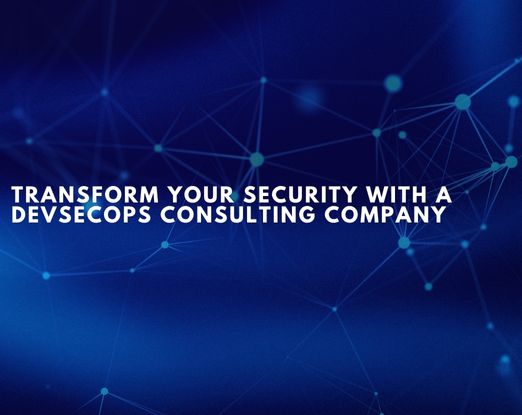In this blog post, readers will learn about the transformative impact of integrating security into the software development lifecycle through a DevSecOps consulting company. We’ll explore the core principles of DevSecOps practices, how they enhance application security, and the benefits of adopting integrated security solutions. By the end of this article, you will have a clearer understanding of how working with a DevSecOps consulting company can significantly boost your organization’s security framework.
Understanding DevSecOps: Revolutionizing Security Practices
DevSecOps represents the fusion of development, security, and operations in a streamlined process that prioritizes security from the start. Unlike traditional models, DevSecOps practices involve continuous collaboration between developers, security teams, and operations staff to ensure that security is not just an afterthought. This section will dive deeper into the principles that underpin DevSecOps, illustrating the shift from a siloed approach to an integrated one.
The implementation of DevSecOps practices enables organizations to respond more swiftly to security vulnerabilities and threats. By incorporating security at the beginning of the development process, this paradigm encourages developers to take ownership of security, fostering a culture of accountability and resilience that modern applications require.
Why Choose a DevSecOps Consulting Company?
A specialized DevSecOps consulting company brings expertise and tailored solutions to address the unique challenges faced by your organization. In this section, we will explore the advantages of collaborating with a consulting company, such as access to seasoned experts, best practices, and comprehensive security assessments.
Partnering with a DevSecOps consulting company allows businesses to leverage the latest tools, technologies, and methodologies, ensuring that security measures are effectively integrated into every phase of development. Furthermore, these partnerships often lead to increased productivity and a reduction in costly security breaches.
The Key Components of Effective Application Security
This section will highlight the essential elements of application security within a DevSecOps framework. We will cover critical aspects, including continuous monitoring, automated security testing, and threat modeling, which together create a robust security posture.
Understanding these components is crucial for organizations seeking to fortify their applications against potential vulnerabilities. We will also discuss how a consulting company can guide your team through implementing these critical practices effectively.
Benefits of Integrated Security Solutions
Integrated security solutions provide a holistic approach to security throughout the development lifecycle. In this section, we will elaborate on the benefits of adopting such solutions, including improved risk management, enhanced compliance posture, and automated security processes that streamline workflows.
With integrated security solutions, organizations can ensure that they are not only mitigating risks but also maintaining the agility necessary to adapt to changing business environments. These solutions foster collaboration between teams and improve the overall security effectiveness.
Real-World Case Studies: Success Stories of DevSecOps Implementation
To illustrate the effectiveness of DevSecOps consulting, this section will present real-world case studies and success stories from organizations that have transformed their security posture through strategic consulting partnerships.
By showcasing different scenarios and the outcomes achieved, readers will gain insight into how implementing DevSecOps practices led to tangible improvements in application security and reduced vulnerabilities.
Getting Started: Engaging a DevSecOps Consulting Company
In this closing section, we will provide actionable tips for organizations interested in engaging a DevSecOps consulting company. Readers will learn how to identify the right consultants based on their needs, evaluate potential partners, and prepare their teams for this transformative journey.
As organizations take the first step towards integrating security into their development processes, understanding what to expect from a consulting partnership can streamline implementation and enhance outcomes.
Conclusion: Share Your Thoughts on DevSecOps
In conclusion, initiating a partnership with a DevSecOps consulting company empowers organizations to embrace proactive security measures from day one. As cybersecurity threats continue to evolve, aligning development practices with security in mind is essential for timely and effective risk management.
We encourage readers to share their thoughts on this topic. Have you worked with a DevSecOps consulting company before? What has been your experience in implementing DevSecOps practices? Leave a comment below and join the conversation!
Frequently Asked Questions
DevSecOps is the integration of development, security, and operations in a streamlined process that prioritizes security from the beginning of the software development lifecycle.
Unlike traditional security models, which treat security as an isolated function, DevSecOps fosters continuous collaboration among developers, security teams, and operations, ensuring security is an integral part of the development process.
Core principles of DevSecOps include continuous collaboration, integrating security from the start, fostering accountability among teams, and enabling quick responses to security vulnerabilities.
A DevSecOps consulting company provides specialized expertise, best practices, and tailored security solutions that help organizations effectively integrate security into every phase of development.
Benefits include access to seasoned experts, the latest tools and technologies, comprehensive security assessments, increased productivity, and a reduction in costly security breaches.
Key components include continuous monitoring, automated security testing, and threat modeling, all of which create a robust security posture for applications.
Integrated security solutions provide a holistic approach to security throughout the development lifecycle, improving risk management, compliance, and workflow efficiency.
Yes, the blog presents real-world case studies showcasing organizations that transformed their security posture through strategic partnerships with DevSecOps consulting companies.
Organizations should identify their specific needs, evaluate potential partners based on expertise, and prepare their teams for effective collaboration during the engagement.
Expected outcomes include improved application security, better risk management, reduced vulnerabilities, and an enhanced compliance posture.
